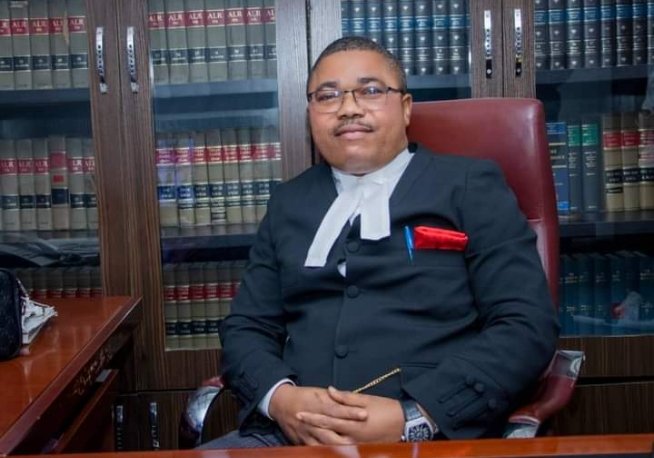The arrest of Chidozie Nwangwu, a prominent native doctor known as ‘Akwa Okuko Tiwara Aki,’ by the Anambra State security outfit, Agunechemba, has sparked controversy and raised concerns about potential abuse of power. Nwangwu, known for his flamboyant lifestyle displayed on social media, was apprehended following a viral video in which he allegedly discussed preparing a substance called ‘Okeite.’ Human rights lawyer Ifeanyi Ejiofor, representing Nwangwu, has strongly condemned the arrest, arguing that it violates his fundamental rights and sets a dangerous precedent for suppressing religious and expressive freedoms in Anambra State. Ejiofor asserts that the arrest appears politically motivated and questions the legality of detaining someone based on religious or personal declarations, even if perceived as controversial.
Ejiofor’s statement highlights the constitutional protections afforded to every Nigerian citizen under Sections 38, 39, and 40 of the 1999 Constitution. These sections guarantee freedom of thought, conscience, religion, and expression, rights that Ejiofor argues are being infringed upon by the Anambra State Government. He emphasizes that Nwangwu’s practice as a traditional doctor falls under the protection of religious freedom, and the alleged video, even if authentic, does not constitute a crime. The lawyer contends that the state’s actions represent a blatant disregard for these fundamental rights, potentially motivated by political vendettas or personal agendas. He calls upon the Anambra State Government to immediately and unconditionally release Nwangwu, warning that continued detention sets a perilous precedent for the suppression of freedoms in the state.
According to Ejiofor, the arrest followed a meeting Nwangwu had with the Deputy Governor of Anambra State, after being personally invited. The lawyer suggests that the invitation may have been a pretext for the subsequent detention, raising further questions about the motives behind the arrest. He stresses that the video in question, even if featuring Nwangwu, was neither officially released nor promoted by him, weakening the argument for its use as justification for the arrest. Ejiofor also notes that Nwangwu has reportedly discouraged individuals without legitimate livelihoods from seeking his services, suggesting an ethical stance in his practice. This further challenges the narrative that Nwangwu’s activities warrant state intervention.
Ejiofor’s defense of Nwangwu centers on the argument that the native doctor’s activities are protected under the umbrella of religious freedom and freedom of expression. He contends that arresting someone based on their religious practices or personal beliefs, as expressed in the alleged video, sets a dangerous precedent for the arbitrary restriction of these fundamental rights. He emphasizes that the state should not interfere with religious practices unless they demonstrably violate existing laws, a threshold he argues has not been met in this case. The lawyer calls for a clear separation between state power and religious expression, warning against the use of government authority to target individuals based on their beliefs.
The lawyer’s statement also criticizes the Agunechemba Security Outfit, arguing that its involvement in Nwangwu’s arrest deviates from its core mandate of combating crime. Ejiofor suggests that the security outfit is being misused for political witch-hunts, a practice he warns will be met with resistance from the people of Anambra. He calls on the security outfit to focus on legitimate crime-fighting activities and avoid becoming a tool for political agendas. This underscores a broader concern about the potential for state security apparatuses to be used to suppress dissent or target individuals for political reasons, rather than addressing genuine security threats.
Ejiofor’s call for Nwangwu’s release underscores the importance of upholding fundamental human rights, even for individuals whose practices or beliefs may be unconventional or controversial. He argues that a society’s commitment to freedom of religion and expression is tested precisely in how it treats those whose practices or beliefs differ from the mainstream. By challenging the legality of Nwangwu’s arrest, Ejiofor highlights the need for due process, respect for constitutional rights, and the avoidance of arbitrary state power. He warns that failing to uphold these principles not only jeopardizes the individual’s freedom but erodes the very foundations of a democratic society.


